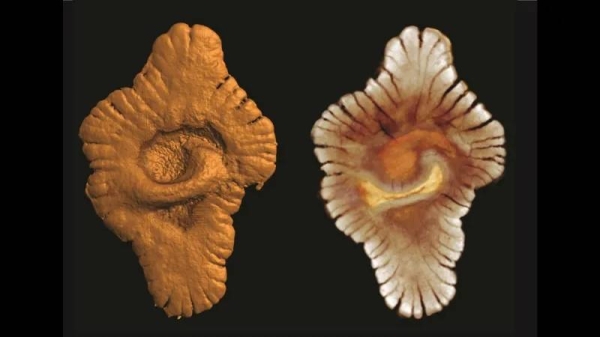Recent research conducted by a group of scientists in Gabon has presented new evidence suggesting that complex life on Earth may have originated much earlier than previously believed. The team claims to have found evidence within rocks dating back 2.1 billion years, indicating environmental conditions that could have supported animal life. This discovery challenges the conventional theory that animal life began around 635 million years ago. While not all scientists agree with these findings, the research adds to an ongoing debate regarding the possible existence of fossils in Franceville, Gabon.
The team, led by Professor Ernest Chi Fru at Cardiff University, analyzed rocks surrounding the formations in Franceville to determine if they contained nutrients such as oxygen and phosphorus that are essential for life. Their findings suggest that the rocks show evidence of a nutrient-rich environment that could have supported simple life forms similar to slime mold. However, some experts, like Professor Graham Shields at University College London, express reservations and call for more evidence to support the theory that complex life forms could have emerged from these conditions.
The isolated inland sea created by the collision of two continental plates is believed to have provided ideal conditions for photosynthesis, leading to an increase in oxygen levels in the water. This, in turn, could have fueled the development of primitive, simple animal-like life forms found in the fossils from this period. However, the lack of new nutrients entering the isolated environment eventually led to the demise of these life forms. The research suggests that the unique conditions present 2.1 billion years ago could have potentially facilitated the emergence and evolution of complex biological life on Earth.
The findings of the study, published in the scientific journal Precambrian Research, shed new light on the processes that may have contributed to the creation of life on Earth. The team’s analysis of sediment cores drilled from rocks in Gabon provides further evidence to support the theory that complex life forms could have emerged as far back as 2 billion years ago. While not all scientists are convinced by these findings, the research opens up a new perspective on the origins of life and the factors that may have played a role in the evolution of complex organisms.
Overall, the study challenges existing beliefs about the timeline of the emergence of complex life forms on Earth and emphasizes the importance of conducting further research to fully understand the processes that led to the development of life on our planet. The findings highlight the significance of nutrient-rich environments in supporting the evolution of simple life forms and offer valuable insights into the conditions that may have facilitated the emergence of more complex organisms. As scientists continue to explore this area of research, more evidence may emerge to strengthen the case for life beginning much earlier in Earth’s history than previously thought.









